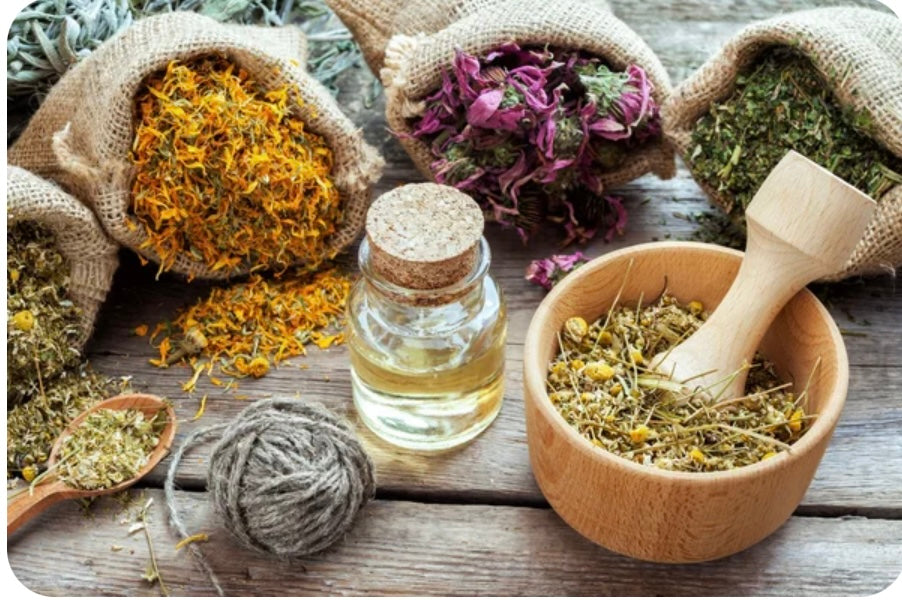SKU:
Sage
Sage
Super Deals
Ends: Jul 9, 11:59 PM PT
WHAT IS SAGE USED FOR?
The German Commission E approved internal use for occasional mild gastrointestinal upset and excessive sweating. Sage conatins high amounts of volatile oils with antioxidant properties. The rosmarinic acid in sage functions with antioxidant properties. The leaves and stems of the sage plant also contain antioxidant enzymes, including SOD (superoxide dismutase) and peroxidase. The ability of sage to protect oils from oxidation has also led some companies to experiment with sage as a natural antioxidant additive to cooking oils that can extend shelf life and help avoid rancidity. Polysaccharides naturally found in Sage, have immune supportive characteristics that help the membranes of the throat support a normal inflammatory response. It is also helpful in supporting normal transition in women through the cooling properties it provides. Research indicates that it may also support healthy prostate function.
Active Constituents of Sage
Volatile oils: camphor, 1,8-cineole, alpha- and beta-pinene, bornyl acetate, geraniol, limonene, camphene, linalool, terpineol, gamma-terpinene, alpha-humulene, and beta-caryophyllene. Phenolic diterpene compounds: carnosol, 12-O-methylcarnosol, 12-O-methyl carnosic acid, and carnosic acid. Triterpenoids: ursolic acid, oleanolic acid, and their derivatives, monoterpenes, & sesquiterpenes. flavonoids (including apigenin, diosmetin, and luteolin), and phenolic acids, including rosmarinic acid.
Disclaimer
This information in our Herbal Reference Guide is intended only as a general reference for further exploration, and is not a replacement for professional health advice. This content does not provide dosage information, format recommendations, toxicity levels, or possible interactions with prescription drugs. Accordingly, this information should be used only under the direct supervision of a qualified health practitioner such as a naturopathic physician.
Payment & Safety
Ensure secure transactions and peace of mind with our trusted payment methods. Your safety is our priority, we employ advanced security measures to protect your personal information and sensitive data.
Do you need more details? Visit our FAQ's or Contact us
Super Deals
Ends: Jul 9, 11:59 PM PT
Couldn't load pickup availability
WHAT IS SAGE USED FOR?
The German Commission E approved internal use for occasional mild gastrointestinal upset and excessive sweating. Sage conatins high amounts of volatile oils with antioxidant properties. The rosmarinic acid in sage functions with antioxidant properties. The leaves and stems of the sage plant also contain antioxidant enzymes, including SOD (superoxide dismutase) and peroxidase. The ability of sage to protect oils from oxidation has also led some companies to experiment with sage as a natural antioxidant additive to cooking oils that can extend shelf life and help avoid rancidity. Polysaccharides naturally found in Sage, have immune supportive characteristics that help the membranes of the throat support a normal inflammatory response. It is also helpful in supporting normal transition in women through the cooling properties it provides. Research indicates that it may also support healthy prostate function.
Active Constituents of Sage
Volatile oils: camphor, 1,8-cineole, alpha- and beta-pinene, bornyl acetate, geraniol, limonene, camphene, linalool, terpineol, gamma-terpinene, alpha-humulene, and beta-caryophyllene. Phenolic diterpene compounds: carnosol, 12-O-methylcarnosol, 12-O-methyl carnosic acid, and carnosic acid. Triterpenoids: ursolic acid, oleanolic acid, and their derivatives, monoterpenes, & sesquiterpenes. flavonoids (including apigenin, diosmetin, and luteolin), and phenolic acids, including rosmarinic acid.
Disclaimer
This information in our Herbal Reference Guide is intended only as a general reference for further exploration, and is not a replacement for professional health advice. This content does not provide dosage information, format recommendations, toxicity levels, or possible interactions with prescription drugs. Accordingly, this information should be used only under the direct supervision of a qualified health practitioner such as a naturopathic physician.
Payment & Safety
Ensure secure transactions and peace of mind with our trusted payment methods. Your safety is our priority, we employ advanced security measures to protect your personal information and sensitive data.
Do you need more details? Visit our FAQ's or Contact us


